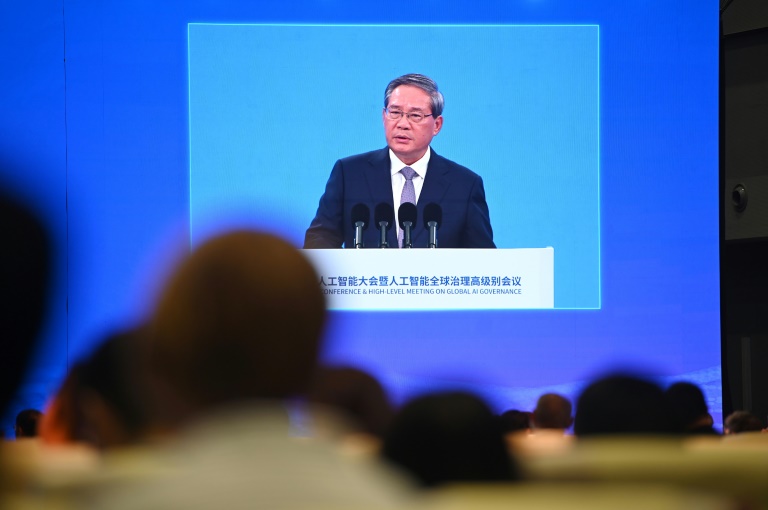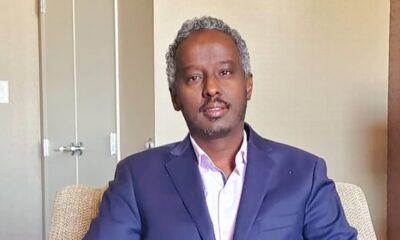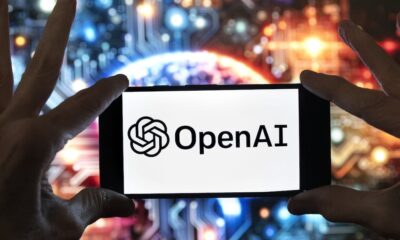Science
China Calls for Global Unity on AI Development and Safety

China’s Premier Li Qiang has emphasized the urgent need for a global consensus on balancing artificial intelligence (AI) development with security risks. Speaking at the World AI Conference (WAIC) in Shanghai on March 15, 2024, Li highlighted that the accelerating tech race between China and the United States calls for immediate cooperation among nations.
Li’s comments come shortly after U.S. President Donald Trump announced a strategy promoting minimal regulation of AI, which aims to solidify America’s leadership in the sector. Trump’s approach includes a commitment to “remove red tape and onerous regulation” that may impede private sector advancements.
At WAIC, Li stressed the importance of governance and open-source development while revealing plans to establish a Chinese-led framework for international AI cooperation. “The risks and challenges brought by artificial intelligence have drawn widespread attention,” he noted. “How to find a balance between development and security urgently requires further consensus from the entire society.”
China is positioning itself as a key player in AI, with Li asserting that the country will “actively promote” open-source AI initiatives and share technological advancements with other nations, particularly developing countries. He warned against monopolistic practices, stating, “If we engage in technological monopolies, controls and blockage, artificial intelligence will become the preserve of a few countries and a few enterprises.”
Li also pointed out the “insufficient supply of computing power and chips” as a significant hurdle in AI development. The U.S. has taken steps to limit exports of advanced chips to China, citing concerns that these technologies could enhance Beijing’s military capabilities and threaten American technological supremacy.
In response to these challenges, China has made AI a cornerstone of its strategy for technological self-reliance, with government initiatives designed to bolster sector growth. Notably, in January, Chinese startup DeepSeek unveiled an AI model that performed comparably to leading U.S. systems despite utilizing less powerful hardware.
The integration of AI across various industries raises profound ethical questions, particularly regarding misinformation, employment impacts, and the potential loss of control over technology. Speaking at WAIC, Geoffrey Hinton, a Nobel Prize-winning physicist, likened the current AI landscape to owning “a very cute tiger cub as a pet,” stressing the necessity of training it to avoid dangerous outcomes as it matures.
In a video message delivered during the WAIC opening, UN Secretary-General Antonio Guterres remarked that effective AI governance will be “a defining test of international cooperation.” This sentiment was echoed by Anne Bouverot, the French president’s AI envoy, who underscored the “urgent need” for global action on AI policy.
Earlier this year, a summit in Paris brought together representatives from 58 countries, including China, France, India, and organizations such as the European Union and the African Union Commission. The summit participants called for enhanced coordination on AI governance. However, the United States, alongside the United Kingdom, expressed concerns about “excessive regulation” and refrained from endorsing the summit’s appeal for an “open,” “inclusive,” and “ethical” approach to AI.
As the discourse surrounding AI continues to evolve, the call for a balanced approach to its development and governance remains pivotal. The dialogue initiated at WAIC reflects the growing recognition of the need for cooperative international frameworks to navigate the complexities of AI technology.
-

 Politics4 weeks ago
Politics4 weeks agoSecwepemc First Nation Seeks Aboriginal Title Over Kamloops Area
-

 World5 months ago
World5 months agoScientists Unearth Ancient Antarctic Ice to Unlock Climate Secrets
-

 Entertainment5 months ago
Entertainment5 months agoTrump and McCormick to Announce $70 Billion Energy Investments
-

 Science5 months ago
Science5 months agoFour Astronauts Return to Earth After International Space Station Mission
-

 Lifestyle5 months ago
Lifestyle5 months agoTransLink Launches Food Truck Program to Boost Revenue in Vancouver
-

 Technology3 months ago
Technology3 months agoApple Notes Enhances Functionality with Markdown Support in macOS 26
-

 Lifestyle3 months ago
Lifestyle3 months agoManitoba’s Burger Champion Shines Again Amid Dining Innovations
-

 Top Stories2 months ago
Top Stories2 months agoUrgent Update: Fatal Crash on Highway 99 Claims Life of Pitt Meadows Man
-

 Politics4 months ago
Politics4 months agoUkrainian Tennis Star Elina Svitolina Faces Death Threats Online
-

 Sports5 months ago
Sports5 months agoSearch Underway for Missing Hunter Amid Hokkaido Bear Emergency
-

 Politics5 months ago
Politics5 months agoCarney Engages First Nations Leaders at Development Law Summit
-

 Technology5 months ago
Technology5 months agoFrosthaven Launches Early Access on July 31, 2025




















